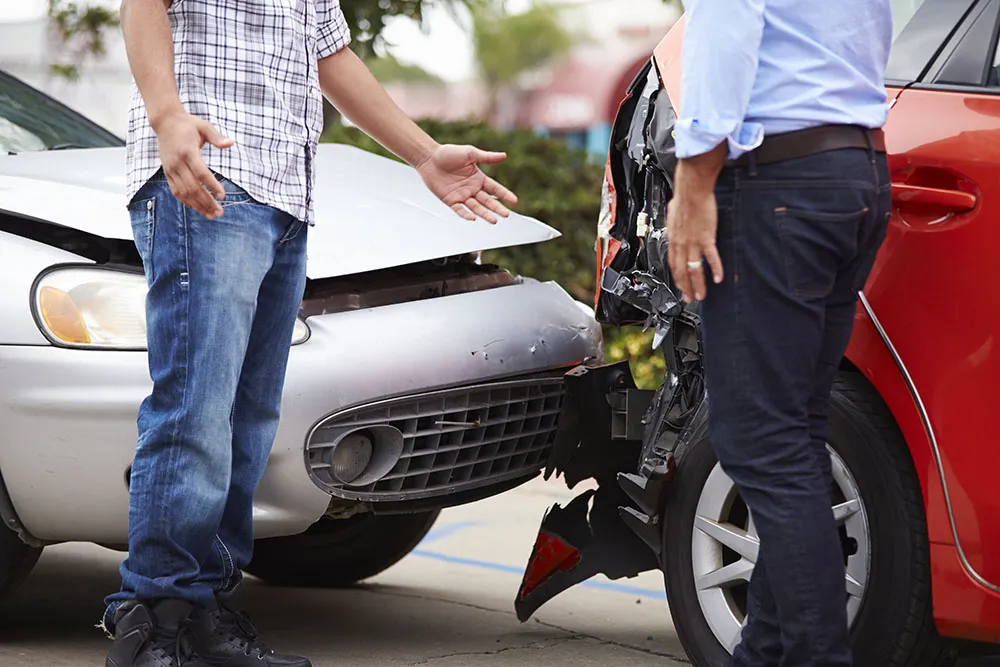Rear-end collisions are among the most common types of car accidents in Louisiana, often leading to serious injuries, property damage, and legal disputes about who’s to blame. While it’s easy to assume the driver in the back is always at fault, Louisiana law recognizes exceptions that can shift liability to the front driver or even both parties.
At The Burrell Firm LLC, we’ve represented countless clients involved in rear-end accidents across Louisiana. Let’s break down how fault is determined, what exceptions apply, and what you should do if you’re injured in a rear-end crash.
Understanding Rear-End Collision Liability in Louisiana
Louisiana follows a comparative fault system, which means fault is divided among the parties based on their percentage of responsibility. This principle is crucial in rear-end collisions — even if one driver seems primarily responsible, the other may still share part of the blame.
In most cases, the rear driver is presumed to be at fault because every motorist has a legal duty to maintain a safe following distance and pay attention to traffic conditions. If a driver crashes into the vehicle ahead, it typically means they failed to stop in time due to distraction, speeding, or tailgating.
Common Causes of Rear-End Collisions
Rear-end accidents can happen anywhere — from busy intersections in New Orleans to highways across Baton Rouge or Lafayette. Common contributing factors include:
- Distracted driving: Texting, adjusting the radio, or eating behind the wheel.
- Speeding or aggressive driving: Following too closely leaves no room for reaction.
- Sudden stops: The front driver may brake unexpectedly.
- Weather and road conditions: Rain, fog, or potholes can affect braking distance.
- Mechanical failures: Faulty brakes or tires can make stopping impossible.
Understanding the cause of the crash helps determine which driver was negligent and, therefore, legally responsible.
When the Front Driver May Be at Fault
While the rear driver is usually presumed liable, certain situations may shift or share fault with the lead vehicle. Examples include:
- Sudden or unnecessary braking: If the front driver slams on the brakes for no reason or in retaliation (road rage), they could share fault.
- Broken brake lights: Faulty or missing brake lights can prevent the rear driver from knowing the vehicle is stopping.
- Unsafe lane changes: Cutting off another car too closely can cause an unavoidable collision.
- Backing up unexpectedly: If a driver reverses without warning, the rear driver may not be at fault.
In these cases, evidence such as dashcam footage, witness statements, and police reports is vital to proving liability.
Louisiana’s Comparative Fault Law
Under Louisiana Civil Code Article 2323, the state applies a pure comparative fault system. This means that even if you are partially at fault, you can still recover damages — but your compensation will be reduced by your percentage of fault.
For example:
If you’re found 20% at fault for following too closely, and your damages total $100,000, you would still receive $80,000 in compensation.
This makes it crucial to have a skilled attorney who can minimize your share of fault and ensure you get the maximum possible recovery.
Common Injuries in Rear-End Collisions
Rear-end collisions can result in severe and long-lasting injuries, especially if the impact occurs at high speed. The personal injury attorneys at The Burrell Firm LLC have represented clients suffering from:
- Whiplash and neck injuries
- Back and spinal cord injuries
- Traumatic brain injuries (TBI)
- Soft tissue damage
- Fractures and dislocations
Even “minor” rear-end crashes can lead to serious back or neck injuries that take months to heal — or may result in permanent pain and disability.
Steps to Take After a Rear-End Collision in Louisiana
If you’ve been rear-ended (or accused of causing a rear-end accident), here’s what you should do to protect your legal rights:
- Call 911 and report the accident. A police report is critical for determining fault.
- Seek medical attention immediately, even if you feel fine at first. Some injuries take time to appear.
- Document the scene. Capture clear photos of the cars involved, the surrounding area, and any noticeable injuries.
- Exchange information with the other driver, including license, insurance, and contact details.
- Avoid admitting fault at the scene — even saying “I’m sorry” can be used against you later.
- Get in touch with a skilled personal injury attorney right away.
The attorneys at The Burrell Firm LLC can investigate your accident, gather evidence, and communicate with insurance companies on your behalf so you can focus on recovery.
Why You Need a Louisiana Car Accident Attorney
Rear-end collisions may seem straightforward, but insurance companies often try to reduce or deny claims by blaming the injured driver. Working with a skilled attorney ensures your case is handled professionally from start to finish.
At The Burrell Firm LLC, we can help you:
- Establish liability through accident reconstruction and expert testimony
- Negotiate with insurers for fair compensation
- File a personal injury or wrongful death claim if needed
- Seek compensation for your medical expenses, lost income, emotional distress, and other related losses
Explore some of our case results to see how we’ve helped clients throughout Louisiana achieve justice after devastating accidents.
Contact The Burrell Firm LLC Today
If you or a loved one has been injured in a rear-end collision in Louisiana, don’t wait to get help. Time is critical in preserving evidence and protecting your rights.
Reach out to The Burrell Firm LLC today for a free consultation. Our experienced personal injury attorneys will review your case, explain your legal options, and fight to secure the compensation you deserve.

